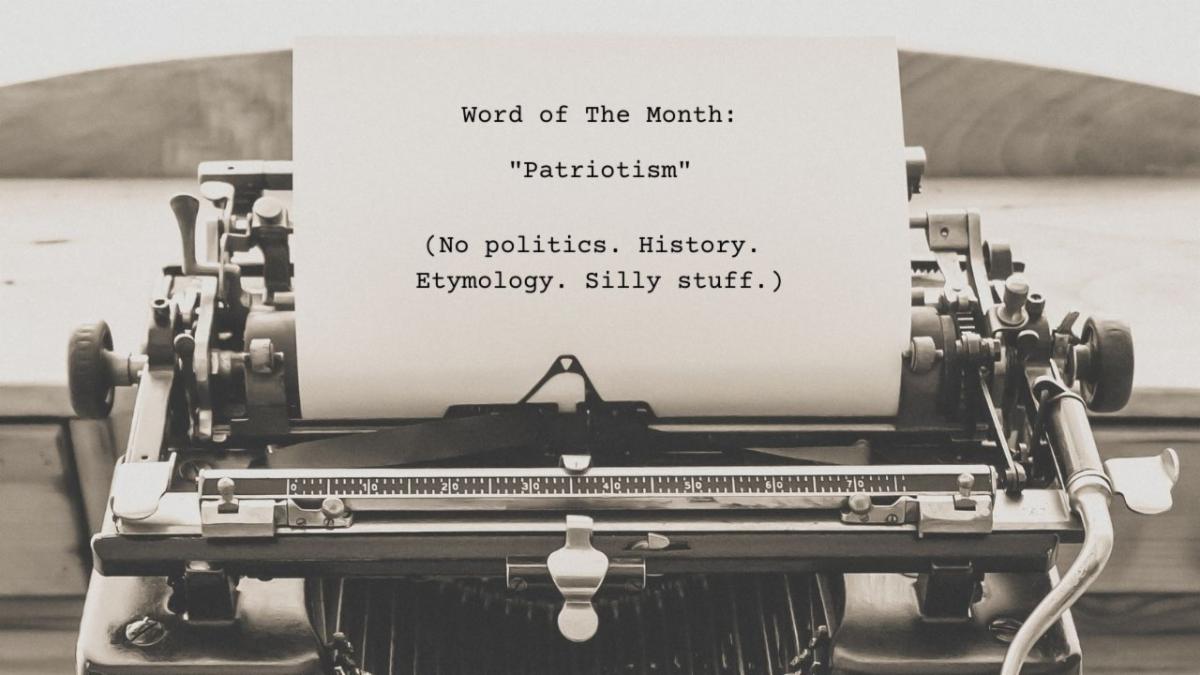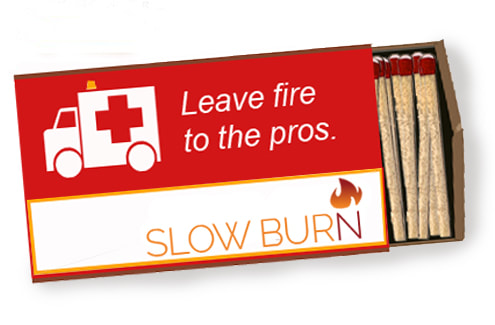|
Word Of The Month: Patriotism
Welcome to the first installment of Words Good, a marginally enlightened effort at illuminating the use of words that penetrate the zeitgeist like a stake through the heart but without as much of a mess to clean up. This month’s word, “Patriotism,” is being tossed around a lot lately. Interestingly, it’s unclear whether everyone is in concurrence on its meaning. So, what does “Patriotism” mean? We can start with a basic definition stolen straight from the oracle of all that is true because of the zeroes and ones involved: Wikipedia. “Patriotism” is a feeling of love, devotion and sense of attachment to a homeland, and an alliance with people who share the same sentiment. (No, I’ve used not quotation marks on that definition, but again, to be clear: stolen directly from Wikipedia.) I once had the rare fortune to live in the wilds of Los Angeles among the fearsome Hollywood Liberal Elite. These are people who, ironically, consider themselves patriotic but would never call themselves “patriots” because they feel it smacks of jingoism. So now, one must ask: What is "jingoism," anyway? It sounds dirty. Well, it kind of is “dirty.” But not in the sense of getting sent to the principal’s office, or writing lines that say “I will not say ‘jingo’ in class,” or having your mouth washed out with soap kind of dirty. It's more like empirically dirty. To again steal unabashedly from Wikipedia (and know that I do make my annual meager donation to the non-profit Wikimedia Foundation, so I hope to receive some special dispensation for that beyond the tax deduction), “jingoism” is a kind of nationalism in the form of aggressive and proactive foreign policy, such as when a nation uses threats or force to protect its national interests. That sounds like something I saw in The Sopranos before James Ganfolfini’s heart exploded on a bathroom floor in Rome. Did he (or Tony Soprano) have a proactive foreign policy? Hard to know. We can’t ask him. Anyway, we never seem to hear patriots talk about jingoism. That might be because, like me, they might fear it sounds dirty, or else they just don’t know what it means. Or both. But back to Word Of The Month: “Patriotism.” Guess what? Americans define patriotism differently than other places. Who saw that coming and waving a flag ahead of it? American patriotism diverges from the European definition of patriotism. And since the US has traditionally diverged from European countries on many things, that’s unsurprising. See also: gasoline prices, the cost of medical care, and cisgender leg hair. The English word “patriot” derives from the Middle French word “Patriote,” which in turn comes from the Late Latin, “Patriota,” or “fellow countryman.” Want more coffee yet? I do. I want French-style coffee. The French make coffee strong enough to make your head fly off. And just by the way, France and America have historically been great allies despite the fact that us Yanquis put ketchup on our fries instead of mayonnaise or Dijon mustard. The French also have something called sauces pommes frites, which is "vaguely béarnaise-like" (thank you again, Wikpedia), and despite translating to "fried potato sauce," it bears no resemblance to the Utah phenomenon known as "fry sauce" which is in no way "bérnaise-like" and more Russian-dressing like, which means like ketchup and mustard whirled together in a bowl, and which could also be the beginning of an international incident. And speaking of international incidents, the French seem to hate the English language and don’t like to speak it because centuries ago, the then conquering English forced them to speak English instead of French. Did the French also have to start calling pommes frites by the word "chips"? Historical records are unclear. Conversely, the English and Americans are great allies because a couple of centuries ago, America sort of kicked the crap out of them. I once witnessed July 4th in the UK. It was very celebratory of us as Americans. I don’t get it. But I digress. None of us (the English, French or Americans) are fellow countrymen, but are we all patriots? Ugh. That word again. Would it please get around to explaining itself? The classic European meaning of patriot is anyone who is a fellow countryman, regardless of socio-economic position. But at one point, the term was applied to Barbarians, who were considered "uncivilized or primitive." The only thing Barbarians had in common with their fellow countrymen was country, and wondering why the New England Patriots couldn’t keep legendary quarterback Tom Brady. Also, it’s ironic that, at one point in world history, it would not have been unusual to hear a castle sentry cry out, “The barbarians are at the gates claiming to be patriots!” But again, I digress. Differences aside, a commonality of patriotism in both America and Europe is a notion of “civic virtue.” For another purloined definition (don’t worry, we will examine “purloined” as next month’s word of the month), “civic virtue” refers to the habits important for the success of a community and the common welfare. Important to note that "civic virtue" is taught mainly in a republic. But in a monarchy, there is no civic virtue. It is preempted by the monarch’s virtue. So patriots are not Barbarians at the gate, but citizens who feel a love and devotion and sense of attachment to a civic virtue for the success of the community and the New England Patriots until Tom Brady starts playing for Tampa Bay. All this just in case you start wondering what the word “patriotism” means when that word starts being overused in various contexts that leave you scratching your head. Word of the day: “Patriotism.” It might also be your can of worms of the day, should you decide to open it. I’m sure it’s now mine. Cheers, Blaine Parker Your Lean, Mean Creative Director in Park City LIGHTNING BRANDING ON AMAZON The Kindle edition of our new book is now available at Amazon for the bargain price of $19.95. For details about our new Lightning Branding courses, both do-it-yourself and we-do-it-with-you editions, click here. (There's even a video of us!)
0 Comments
Leave a Reply. |
AuthorBlaine Parker is prone to ranting about any and all things related to brand. In many ways, he is a professional curmudgeon. While there is no known vaccine for this, the condition is also not contagious. Unless you choose it to be so. Archives
February 2022
Categories
All
|
|
© Copyright 2020 Slow Burn Marketing LLC |


 RSS Feed
RSS Feed

